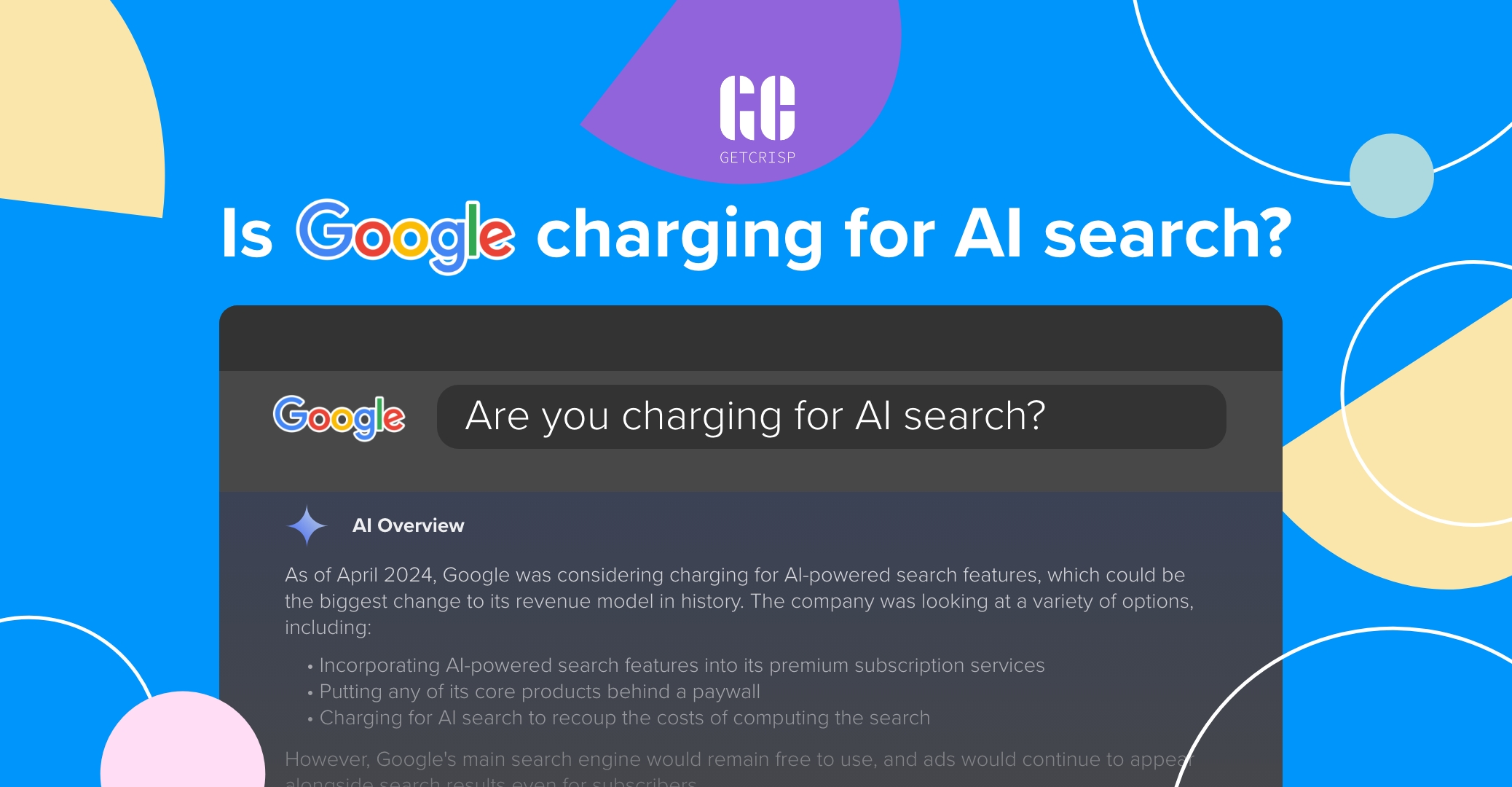In a radical change to their revenue model, it has been reported by the Financial Times that Google is considering locking new AI Search features behind a paywall. This would be the first paid search feature implemented by Google in its history but would follow its current approach to AI assistance. Currently you do have to pay to use AI integration for Gmail and their Google Workspace suite.
Today we’ll discuss the benefits of AI Search, whether a paid subscription is worth your money, and how it will affect business SEO.
What is AI search?
AI Search, called AI Overview by Google, has existed since 2023, and you might have already used it. When you search for the answer for a question into Google or Bing, the search engine will run the same query into its own GPT. The Search engine will generate the answer using AI, and present this above the usual range of search results. It’s simple but effective.
AI Search aims to challenge to Open AI’s wildly popular ChatGPT, the service that many believe could make traditional search redundant. The advantage of ChatGPT is that it provides a single answer to a user’s question, rather than a list of links that could answer the question, alongside advertisements.
So, Google knows it needs to embrace AI somehow, but they are still experimenting with exactly how they’re going to do it. They have already come under fire from advertisers, who are concerned that AI powered answers will discourage users from clicking through to their sites.
Either way, AI Search is not going away, but it still awaits to be seen what kind of price tag, if any, the finished product will come with.
Will AI Search be worth your money?
The answer really depends on what you’re looking for. Any future AI Search features will likely be paywalled behind Google’s One subscription. The subscription currently includes cloud storage, and access to Google’s answer to ChatGPT, Gemini. Users of Google One also gain access to the premium versions of Google’s Workspace suite of apps.
If you already work with Google’s ecosystem, there’s a genuine use case here.
It’s important to note that Google One doesn’t make your search experience ad-free. Even with AI Search’s potential inclusion, Google has announced that it is “not working on or considering” and ad-free search experience.
Google One currently comes with an £18 per month price tag.
What could be featured in premium AI Search?
Although Google hasn’t launched its service, there are alternatives already on the market that could indicate what their answer to AI Search might look like. One alternative is Perplexity’s Pro Search.
Pro Search has a number of features that go beyond the typical search experience. It asks clarifying questions to help you hone your answer. It also links the sources to each of its answers, which could go some way to alleviating the fears of advertisers worried their sites will lose out on traffic.
Pro Search also includes a code interpreter that allows users to execute code and obtain fast results. This feature is particularly useful for data analysis, debugging, and content generation.
The code interpreter is naturally useful for developers, but the more precise search results can have a wide range of use cases for marketers, researchers and businesses working in compliance.
How could AI Search impact SEO?
As we have mentioned, the rise of AI Search is likely to lead to more ‘zero-click searches’, where people end their query without clicking through to a website. AI Search will only be used selectively, for queries that typically take more than one search. Google has also announced that it intends to include sponsored ad results in AI Searches.
All of this this might sound worrying for businesses who have put time and effort to getting their content to the top of search results, but AI Search does create opportunities.
Just like position zero, the search snippet that appears when a piece of content answers a specific question, content that features in an AI-generated overview is likely to see a higher click-through rate than other top-ranking results.
Google haven’t published any official guidelines for businesses trying to rank their site in AI search, but it is safe to assume that traditional SEO guidelines will apply here as well. That means creating high-quality, original content designed around answering the questions your audience are most likely to ask.
What does all this mean for you?
AI Search is the next step in search technology. Whether Google or other providers charge for advanced features or not, AI will play a big part in how we access information moving forward. Making sure your website is best optimised to take advantage of these changes is essential to your ongoing success. At GetCrisp we offer you the guidance, strategy and marketing content to help. Get in touch to find out more.
